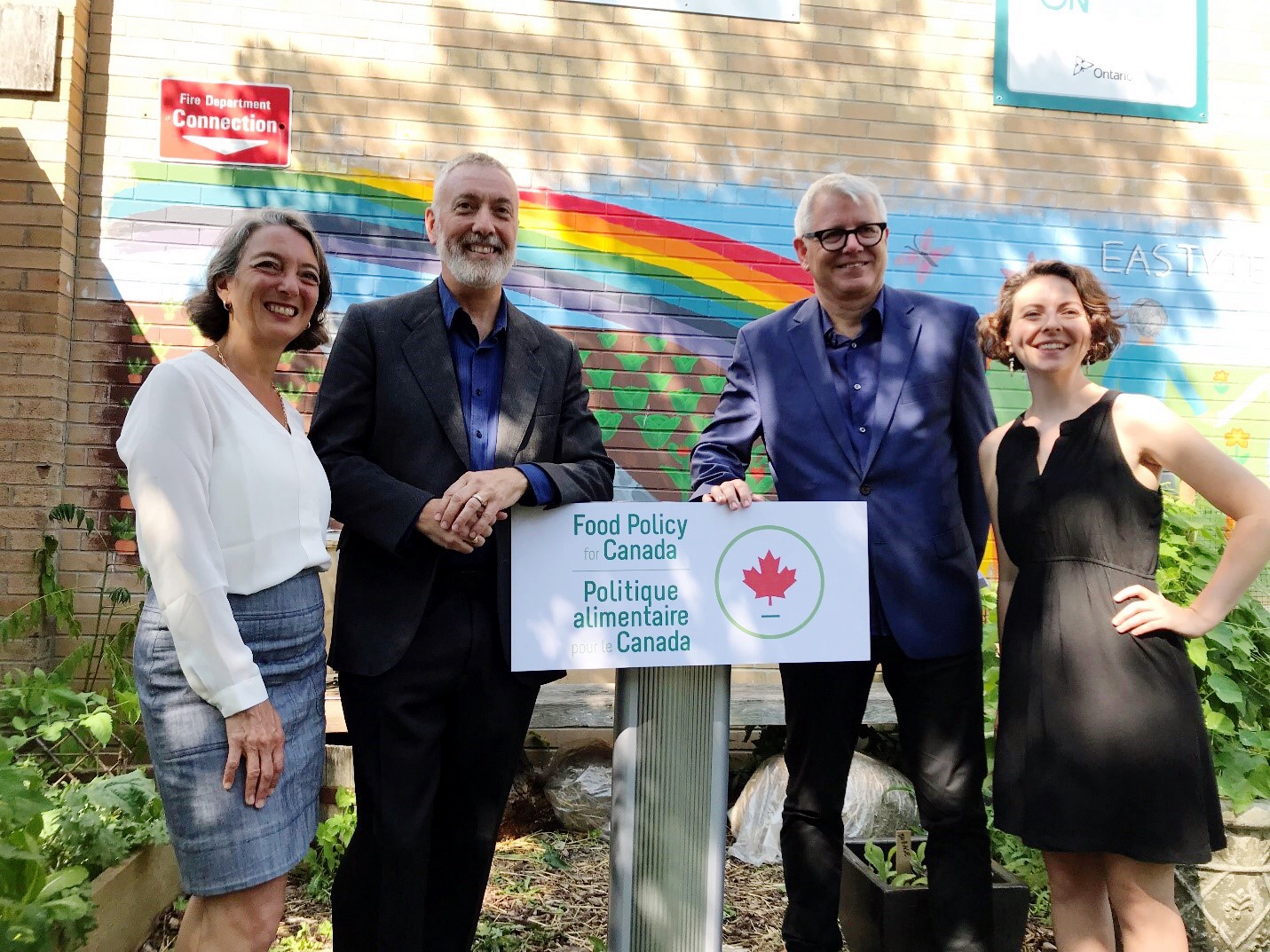
On July 23, local food organizations gathered at Eastview Neighbourhood Community Centre, a member agency of the Daily Bread Food Bank, to celebrate the launch of the first Food Policy for Canada.
The vision for this national food policy is two-fold:
We were pleased to hear Adam Vaughan, Parliamentary Secretary to the Minister of Families, Children and Social Development, acknowledge that poverty is a root cause of food insecurity. We believe that this policy, along with the national poverty reduction strategy, are important steps forward in realizing the right to food in Canada.

Local Food Infrastructure Funds
As part of the new food policy, the government has announced $50 million food infrastructure fund that will directly provide capital, food equipment and other infrastructure funding to local community organizations over the next five years to enhance access to nutritious foods. This is a much needed investment to support organizations, like our member agencies, in building and enhancing necessary infrastructure to better meet the needs of their communities.
Starting August 15, 2019, eligible organizations can apply for funding of up to $25,000. More details can be found here.
National School Program
We are excited that the government will be beginning public consultations to create a national school food program. Over 1.15 million children in Canada are food insecure,[1] but our current patchwork of school food programs serve only a minority of students in Canada.[2]
Here at the Daily Bread Food Bank, close to one third of the clients we serve are children.[3] Our annual survey revealed that close to one in five of these children go hungry at least once a week.[4] Children who lack adequate food have a harder time keeping up with school,[5] and have poorer health in the long-term.[6]
School food programs are an important way to ensure that all students have the chance to succeed in school. While the announcement in the 2019 federal budget does not have any funding attached, we will be actively participating in the consultations to ensure that the national school food program becomes a reality in Canada.
More information on the Food Policy for Canada can be found here.
[1] Household Food Insecurity in Canada. (n.d.). Retrieved July 22, 2019, from https://proof.utoronto.ca/food-insecurity/
[2] A national healthy school food program. (2016, April 26). Retrieved July 22, 2019, from https://foodsecurecanada.org/resources-news/news-media/we-want-national-healthy-school-food-program
[3] Who’s Hungry: A Profile of Hunger in Toronto 2018. (2018, October 31). Retrieved July 22, 2019, from https://www.dailybread.ca/research-and-advocacy/whos-hungry-report/
[4] Who’s Hungry: A Profile of Hunger in Toronto 2018. (2018, October 31). Retrieved July 22, 2019, from https://www.dailybread.ca/research-and-advocacy/whos-hungry-report/
[5] Kleinman, R.E., Hall, S., Green H., Korzec-Ramirez, D., Patton, K., Panago, M.E., Murphy, J.M. (2002). Diet, breakfast and academic performance in children. National Institutes of Health.
[6] Kirkpatrick, S. McIntyre, L., Potestio, M.L. (2010). Child hunger and long-term adverse consequences for health. Archive of Pediatric Adolescent Medicine 164(8),754-762.